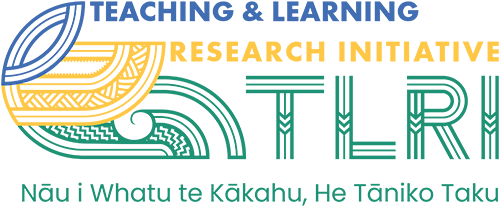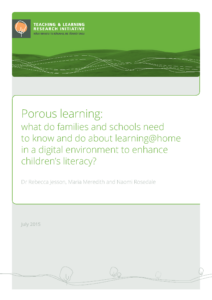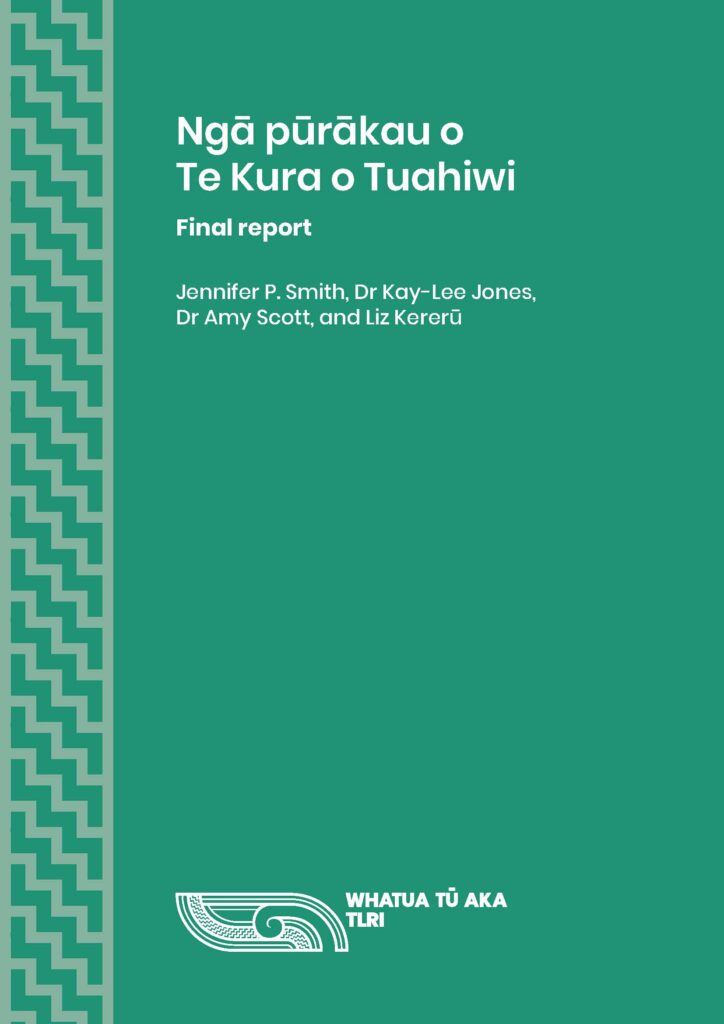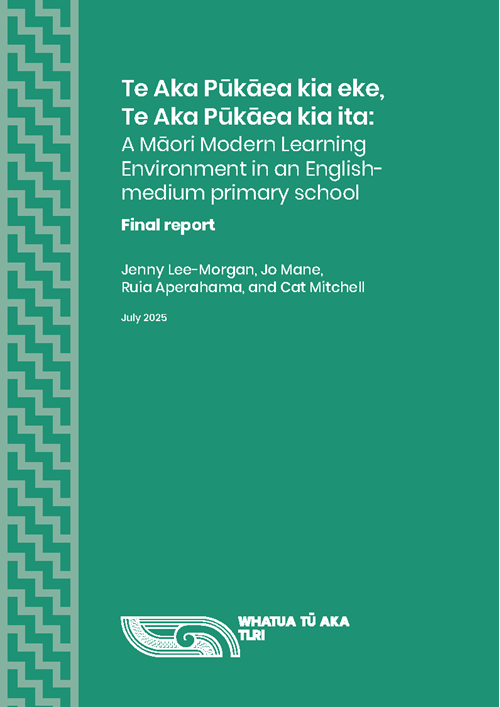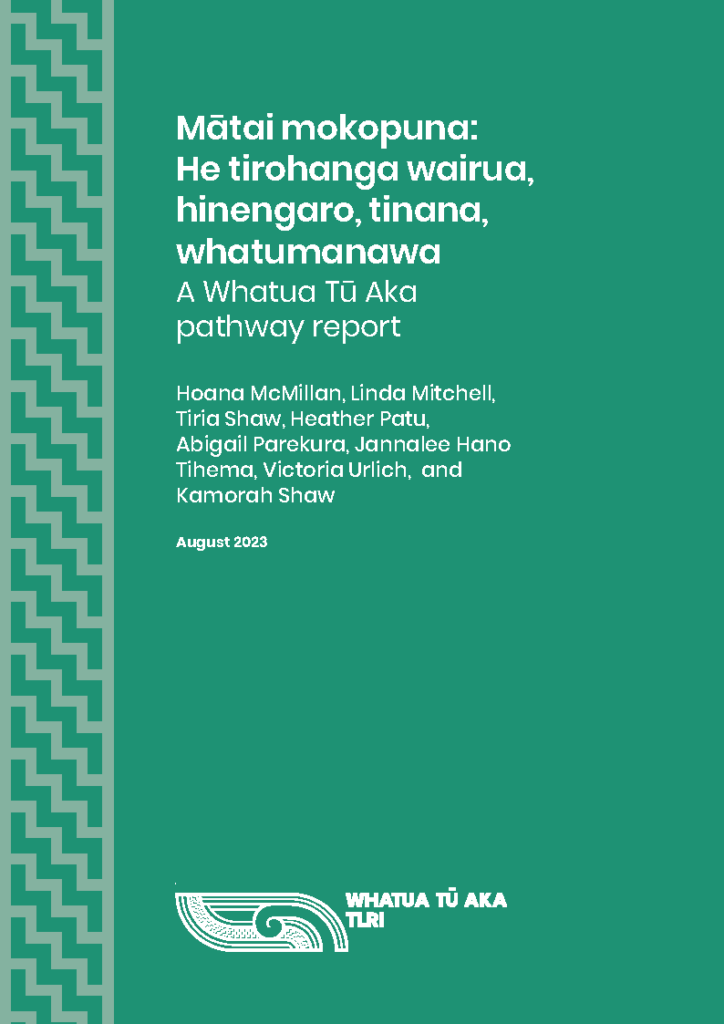Introduction
School students increasingly use digital technologies at home to enhance learning and bridge the school– home divide. The porous learning project was designed to explore the factors that both enabled learning and created barriers to learning at home for students in a low socioeconomic community using the digital learning environment, which we refer to as learning@home. The study investigated ways to inform families and schools, and also equip them with strategies to enhance children’s literacy within a digital learning environment at home. The term digital learning environment (DLE) describes technology used to enhance learning; for example, netbooks, the internet, blogs.
A key motivation for the project has been a growing concern for a “second digital divide” (Attewell, 2001) to develop, based on differences in practices associated with using digital tools to develop literacy skills. The second digital divide has been a recognised issue internationally (Reich, Murnane, & Willett, 2012), with differences observed in how families engage with digital technologies, even if steps are made to ensure they have access to them in the home. Perhaps the greatest potential for a divide in digital practice occurs over the summer. The summer learning effect adds to inequalities in educational outcomes because achievement levels of students in low decile schools are differentially affected by time out of school.
The project was situated in a low socioeconomic community to better understand issues of guidance, support, constraints, enablers, and barriers to achievement in the context of a potential second digital divide. Parents’ ways of participating with their children in a digital learning environment are complex, and intertwined with social issues including work, safety and time (Hollingworth, Mansaray, Allen, & Rose, 2011), and in some ways relationships with families are unchanged in that parents continue to feel that they are not valued in communication with schools (Grant, 2011). Digital media potentially adds another dimension to this important relationship, but also another literacy challenge for families to grapple with in supporting their children.
Research questions
The overarching research question that guided the project was: What factors enhance and constrain students’ learning@home in a low SES community?
Research sub-questions were:
- What are students’ patterns of learning@home?
- How do parents provide support and guidance for students’ learning@home?
- What guidance and support is accessible to parents to help them support students’ learning@home, and how do families interpret and use this?
- How are these patterns of student use and parental support associated with achievement in writing?
- What barriers to school achievement exist, and how, if at all, are these addressed by families?
Methodology
The study employed a mixed methods design approach (Leech & Onwuegbuzie, 2008). This took place over two years (2013 and 2014) and gathered multiple perspectives. Data collection methods were interviews, focus groups, and patterns of student achievement data (e-asTTle writing assessment). The mixed methods design allowed researchers to use qualitative methods to explain patterns that became apparent in the quantitative student achievement data.
Participants
A total of 40 students and their parents/caregivers (37 mothers, 9 fathers) participated in the project. The students were from six East Auckland schools. There were a range of ethnicities (mainly Māori, Tongan, and Samoan) and year levels (Years 5–13). Parents’ digital experience ranged from those who expressed no interest or had never used a computer to those who were very experienced for personal or employment purposes.
Data collection
Interviews
Students and their parents/caregivers were each interviewed twice: once in Term 3, 2013 and again in Term 1, 2014. Questions were asked about the learning the students engaged in using the digital learning environment, what motivated learning@ home, constraints or enablers, guidance from parents to students as well as from schools to parents, and learning@home over summer. As in all interview situations, students and parents were free to provide any information.
Focus groups
Twelve teachers (6 primary and 6 secondary) participated in a 60 minute focus group session in Terms 3, 2013 and 10 teachers (5 primary and 5 secondary) in 2014 to discuss learning@home. Separate focus groups for primary and secondary teachers allowed for possible differences between settings. The focus groups discussed patterns of advice, guidance and consultation on the role of the digital environment in learning, expectations of students, expectations for parents and teachers’ views on actual practices and usage.
Achievement measures
The measure of literacy achievement selected as an indicator of achievement was e-asTTle writing. Writing was selected as a literacy measure for two reasons. The first is that writing represents both a challenging literacy measure and one valued by schools. The second reason was that students were involved in creating such digital texts as blogs and wikis, likely to have an effect on writing skills. This rationale is supported by international evidence showing a digital learning environment has a greater effect on the area of writing (Warschauer, 2007). Writing data were collected in two forms:
- Students’ test scores in the standardised assessment used by the schools (Ministry of Education, 2012).
- Overall teacher judgement of the students’ performance to verify the validity of the e-asTTle measure.
Data analysis
Data analysis was conducted in multiple iterative phases. Firstly, focus group recordings were transcribed and analysed thematically. Secondly, student and parent interviews were analysed separately. Thereafter, analyses were combined comparing students with their parents. Finally, the analyses of students and parents were compared with teachers. Results from these qualitative analyses were then mapped onto student e-asTTle writing data, collected at three time points: Term 1 and Term 3, 2013; and Term 1, 2014. Scatter plot displays of student achievement gains were generated for each of the five categories to analyse possible relationships between learning@home practices and achievement. Students were categorised according to their achievement (high or low) and their progress over the year (high or low), and associations with practices identified.
Findings
What are the patterns of learning@home?
What teachers said
Arguably, not all digital engagement out of school might be considered learning. In terms of the role of the digital learning environment to promote learning, teachers indicated that the digital learning environment would mean that students could spend more time on school assigned tasks out of school. They also reported that the digital learning environment meant that more of students’ assignments were completed: “There seems to be more work going on at home than there used to be, and I can only see that improve.”
An alternative to more work was more play. Teachers referenced the ability of students to learn incidentally through games. Most teachers agreed students needed to develop self-regulatory skills and assign time wisely. One teacher mentioned students’ independent pursuit of learning as opposed to that set by the teacher or through games. However, this one instance is notable because it was the sole contribution that referred to student independent initiative in the digital learning environment: “Actually I had a few students tell me about some good videos that they saw on YouTube and the next day we shared it in the class …”
In primary school classes, students were expected to interact through blogs and collaborative assignments. In secondary school classes students were expected to work towards credits, and keep up with set work, either in or out of school. We discerned two major approaches to learning@home by teachers. The first set formal expectations for homework; the second considered that the digital learning environment meant that there no longer needed to be a formal home/school division. In “formal homework” classes, teachers took a traditional approach to homework, sending home a list of tasks, or assigning a home learning tab to access digitally: “It’s written down on a Google document on the class site on their homework tab”. Where learning@home was considered to be an extension of the school day, teachers referred to the expectation that students keep up with, or finish, set in-class tasks, as in this example from the secondary school: “So any work that they miss I’d expect that they need to catch that up in their own time”.
Teachers perceived that most online use after school was recreational (“I think, like, a lot of them play games.”) Teachers also reported that students completed teacher-made tasks delivered as digital worksheets in both primary and secondary classes and emailed them for support. In the secondary school in particular, students were perceived as being reticent in seeking support during class. Email gave those students access to individualised support, without having to ask for help in the public environment.
What students and families said
Four key themes emerged from student and family interviews as important patterns of use. These were: Time spent engaged in learning@home; learning@home activities; learning@home strategies; and valuing reading when learning@home.
Time spent engaged in learning@home
Of the 40 students who participated, the majority reported daily online access (65%), but the time range varied considerably from 30 minutes to five hours. Those who spent more than three hours tended to be reading online books or Fan Fiction, playing maths or logic games, blogging, doing research and making movies. Four students described their learning@home time as weekly (two to three times), which coincided with what parents called “homework days”. There were two students with internet access who reported learning@home once a week and 10% (n = 4) who reported to be “hardly ever” online.
Most parents could quantify how long they believed their children were learning@home, and were mostly consistent with students’ reports, except where students were online for more than two hours. Parents enforced time restrictions on digital access and also valued non-digital time: “They (children) need a balanced lifestyle. Get outside and use your imagination”.
Reported rates of online summer use were much more variable than during the school year which may suggest a difficulty remembering everything that goes on in the summer break, or reflect actual variability in what students were doing at different times. Students reported a considerable drop in daily digital usage over the summer break from 65% during the school year to 37%, which could have been due to time out of town on holiday, at “holiday programme” or overseas.
Learning@home activities
Students typically categorised their learning@home as: (a) finishing school work (43%); (b) doing prescribed activities (25%); or (c) using their own initiative (10%); for example, “I make my own homework up. And I need to read. I need to read for an hour … Sometimes I just write stuff on the computer not for school.” Specific activities included maths practice (38%), fiction and non-fiction reading (45%), and writing (15%). Students also reported posting to a blog, commenting on others’ blogs and preparing blog posts. There were some students who appeared to demonstrate online learning initiative (28%), by writing, reading or researching beyond what was required. Taking initiative was also seen in collaborative practice such as “I collaborate with email and on docs.” Almost half of the students described doing some form of reading either as research for inquiry or project work, and some mentioned reading school journals, chapter books or library books (which one student referred to as “real books”).
Parents described three main types of activities: (a) assigned homework, research, and programs; (b) communication such as email, online chat, Skype, Twitter; and (c) social/personal, for example, YouTube, Facebook/social networking. Parents typically (68%) saw their students’ netbook or online behaviours during the week as learning, rather than playing (20%) or socialising (8%) (two parents did not respond). Activities such as blogging, searching, using maths games and spelling applications appeared to be sanctioned. Some forms of digital creation were not sanctioned. One parent explained his daughter “uses the netbook for playing” in the context of Photoshop and artwork. Most used the term “homework” to describe learning@home.
Compared with the school year, the summer break was clearly marked by online socialising as 73% of students reported being engaged in communicating with friends and family through Facebook, email, online chat and/or Skype. Although a couple of students reported accessing their classroom site, none had learning@home tabs during the break. Most (70%) were given some advice about summer learning from school; however, much of the “advice” was general recommendations (43%) such as “read more”, “check email often”, and “blog posting”. There were a handful of students (n = 5) who showed online learning initiative over summer, such as alternating between maths practice blog posting, or by looking for “guitar stuff I can play on YouTube and violin stuff because that’s what I’m learning this year”.
The majority of parents (70%) stated not having given their child any advice about learning over the summer break, which corresponded with student reports. Some continued to oversee learning@home over summer, with 20% reporting checking that set work (by parents), reading or “writing for his blog” was being done. Three parents demonstrated close involvement in summer learning@home; for example, by revising “what she did at school during the year” and discussing “the different websites she shows me”.
Learning@home strategies
When “stuck”, almost 40% of the students began by approaching a parent or adult relative. Students’ patterns of digital independent strategy use fell into three categories: (a) managing distractions; (b) searching online for information or guidance; and (c) online collaboration (with friends or teachers). The 10% of students who reported having no strategies to draw on generally shut down the netbook and went out to play or listened to music.
Only a quarter of children reported using the internet as a problem-solving resource, with one reporting that “going online and searching for the answer is cheating” (according to the teacher). Some of the students’ search strategies revealed limited critical attention to source: “I choose the first one and keep going down”. Computermediated discussion was a strategy for 10% of students; for example, “Mostly we share it online and then we tell each other—you can do this or that.” Students who reported waiting for the next day at school to ask a teacher or friends, had generally asked for parent or sibling help first. One student reported being too scared to approach the teacher for assistance.
Like the students, parents reported that they, older siblings or the teacher were avenues for assistance. However, some said (28%) students never needed any guidance. Only a small number (5%) reported students employing online searches when facing difficulties. Unlike students, parents neither mentioned managing distractions nor online chat as digitally related strategies for problem solving.
Over the summer break the most common response to a learning problem was also to approach a parent/ adult relative (43%) or an older sibling (13%) to assist. In terms of independent strategy use, only a handful of students mentioned searching online (10%) as a problem -solving affordance during summer, compared to at least twice this much during the school term.
Valuing reading for learning@home
Over half of students maintained that reading helped to promote their learning such as “Going on learning sites: Google, Yahoo.com for research” or “Wikipedia. It gives you all the answers”. There were also students who particularly valued independent reading such as e-books and informational reading. One student reported “Reading hard books online or at home. Search up online books” and another learned by “reading everything that I see online”. Students who referred to “real book” reading also engaged with digital modes, such as e-books or story websites. Two students mentioned dads encouraging independent reading: “My dad tells me to read more books”.
Conversely, relatively few parents referred to students reading or guidance thereof. One parent mentioned that “Reading is a must every night at home” and another maintained, “The teacher who is also Tongan gives me tips about what he should be doing (e.g., online, reading)”.
Over summer, student reports of independent reading increased considerably. Types of reading ranged from fiction, such as The Hunger Games and Roald Dahl’s The Twits and e-books, to non-fiction such as The New Zealand Herald online. Many of these students reported they had written blog posts about what they had read; one kept a reading log. Eight students (37%) mentioned receiving advice to read over summer from the school, with one student specifically reporting their teacher had told them to read for 20 minutes a day and another suggested: “I don’t need to go online over summer. I have my books. My nana and parents take me to library”. When asked to give summer learning@home advice, a number of these same students revealed a particular appreciation of book reading, insisting “Still read books”; “Keep on reading. Never stop. Write about the book. Tell us about what we learn from the story”; and “Read—you learn heaps by reading”.
How do parents provide support and guidance for students’ learning@home?
Fifty percent of students reported general homework oversight by parents, such as ensuring completion and checking in. Some reported time restrictions, often 30 minutes or 1 hour (regardless of requirements or interest), and a parental view that online chatting with friends is counter-productive and non-learning related. Parents placed restrictions on watching online videos, such as “league videos” and playing games, until prescribed homework was completed, indicating possible tensions between parents’ notions of what counts as “homework” and wider school and student definitions of learning in the digital learning environment.
Twenty percent of students reported parental advice predominantly concerned online safety, particularly bans on Facebook. Relatively few students (20%) reported direct parental involvement in, for example, discussion, questioning or clarification and review. Students who did receive parental advice or assistance described “testing my basic facts”, recommending book reading, “helping me search it up” and giving activities to do, such as extra maths equations.
Student descriptions of parental guidance over summer revealed an encouraging role, rather than the oversight role seen during the school term. Students described parents saying they “should be learning”, “to keep reading and stop watching TV”, and “to do my work—to blog”, with little follow through or checking in. Although parents were encouraging, many students reported “but there is no set home learning.”
What guidance and support is accessible to parents to help them support students’ learning@home, and how do families interpret and use this?
When asked how families should support learning@home, teachers expected that families care for digital devices. A related parental role also involved safety for the children in the online environment: “It’s also care of the child … about keeping the child safe online.” Families were, therefore, expected to monitor appropriate use, and not allow students to engage in inappropriate digital activities.
Teachers referred to parents’ role as “taking an interest”. This might mean viewing children’s digital learning objects, reading and discussing schoolwork or commenting on students’ blogs. However, this was implicit. Other than assistance with set tasks, teachers mentioned few strategies for support of students’ learning at home.
Like the teachers, parents foregrounded the monitoring role. Parents reported “Use the netbook where you can see it”, telling children “not to go on bad sites”, and “monitor kids online and be careful of sites kids visit”. A number of parents mentioned reviewing internet history, although one parent mentioned, “Kids are clever, they know how to delete history online.”
Parents also referred to receiving advice on accessing class sites, blogs and downloading learning material, and commenting. Just over 10% reported advice relating to parental involvement in learning such as viewing and discussing, commenting, reviewing, assisting and encouraging online reading/writing and publishing. One parent suggested getting children to show their online work which “opens communication and dialogue about what your child is learning”.
For summer, no specific provision, advice, meetings or support was reported as given to parents around learning@home. Most parents reported “not much” learning-related advice (67%). General communication was included in school newsletters, notices, school reports and at one year-end assembly. One parent mentioned a decrease in school contact during transition to secondary school and another voiced expectations for “the school to set homework and for my child to have learning goals” over the summer, which had not transpired. Learning related advice tended to be limited to encouragement to engage in learning activities or to “keep up with the learning” during the break with no more specific guidance.
How are these patterns of student use and parental support associated with achievement?
Time engaged in learning@home
All high-achieving students who made high progress spent more than 1 hour in online learning, with two reporting up to 1.5 hours daily and a further two between 4 and 5 hours daily. Mapped against achievement, it seems that less time spent engaging in digital activities did not necessarily coincide with lower rates of learning, but that those with more engagement tended to be higher achieving or make accelerated gains. Moreover, low progress and low-achieving students tended to engage in little learning@home.
Nature of learning@home activities
Students who were low achieving and low progress reported either no engagement in learning@home or that it was characterised by doing unfinished school work or “catch-up”. Conversely, all but one of the students who had set learning tasks as a class “Home Learning” tab made achievement gains.
Learning@home strategies
Few of the low-progress students (whether low or high achievers) reported using any of the identified digital strategies; that is, managing distractions, searching online for guidance, or computer-mediated discussion (such as online chat or email). Students who achieved some of the highest gains across the year reported using both managing distractions and searching online for guidance as strategic tools.
Valuing reading for learning@home
Eight of the 20 (40%) students who made accelerated progress had reported valuing reading, and three of the four (75%) high-achieving students who made high gains reported valuing and engaging in independent reading. Conversely only three of the 13 (23%) students who made less than expected gain reported such engagement.
All low-achieving students who made accelerated progress engaged in some form of independent reading over summer. Similarly, four of the five students who did not report reading over summer were low achieving and made low progress over summer.
Parent involvement in learning@home
Overall, the minority of parents were categorised as giving specific learning advice to their children. Of the 20 children who made greater than expected progress within the year, eight (40%) had specific learning advice from parents. For those who made lower than expected progress, three of the 14 (21%) had received such advice.
What barriers to achievement of valued student outcomes exist, and how, if at all, are these addressed by families?
Barriers to achievement were identified as either hard or soft constraints (Table 1).
| Constraint Type | Evidenced by | How Constraints Were Addressed |
| Hard | Physically unable to access a device, the site or blog; e.g., no access to Wi-Fi or no device at home. The majority of students (n = 34) had digital device or internet access during the school year and the remainder sought access elsewhere. | Students resorted to innovative ways of accessing the internet at other sites such as extended family and libraries. |
| Soft | Student distraction. | Students’ recommendations included “manage your time” by setting time limits, prioritising work over play, and staying “on the right site”. |
| Soft | A lack of clear information about what parents and students ought to be doing to support learning out-of-school using the digital environment. | None evident. |
| Soft | Multiple family members needing to access digital devices (e.g., older siblings needing to use devices to access university sites). | None evident. |
| Soft | Inefficient or under-developed independent strategies such as: (a) students who would cease their activity or wait to get help the following day when “stuck”; and (b) inefficient search and informational strategies that constrained students’ ability to learn using the digital medium. | None evident. |
Implications of this study
There are four implications arising from this study. These are: developing an agreed understanding with families about home learning participation; Ensuring support to “go beyond”; Independent strategy development; and Preparation and support for summer learning.
Developing an agreed understanding with families about home learning participation
Increasingly, digital learning environments offer an extension to school learning (Davies & Jewitt, 2011) and a number of teachers supported this. Teachers expressed a role for parents to model the value they place on what students are learning, by taking an interest. In concrete terms this might require a dialogic stance to learning: discussing, reviewing, and asking questions about learning sites and blog posts. There are potentially conflicting implications for parents and families about how to best support students’ learning (e.g., whether to oversee homework, encourage games or online interests, or ask students to explain something they learned at school). As with previous studies (Grant, 2011), some parents expressed frustration at not knowing how to engage with learning digitally, and little information on how the digital environment changes learning.
We identified some occasions where the digital learning environment, with a vision of seamlessness between home and school, may have had unintended consequences. Some students, for example, reported restricted access to digital devices when they “didn’t have any homework”, whereas teachers reported an expectation that children should carry on accessing the class site out of school, without assigned homework.
Ensuring support to “go beyond”
When home learning was viewed as an opportunity to finish off unfinished schoolwork, our analysis suggests that the low-achieving, low-progress students were doing these sorts of activities. This can be understood using a “below the line” metaphor: Catching-up activities can only bring students up to the line; they will not take them beyond. Conversely, students “going beyond” school-time requirements, either by engaging in set tasks or taking the initiative to learn or create further, made accelerated progress. There is perhaps an “opportunity to learn” implication here for practitioners: Ensuring support for students to go beyond what is assigned, so that assigned school activities do not create an upper boundary to further learning. There is also an implication for parents, as “going beyond” activities might require flexibility in terms of the conception of what schoolbased learning should look like. Similarly, many students reported valuing reading, including online reading, for recreation and information. Such activities might also require flexibility in terms of the amount of digitally engaged time needed out of school.
Independent strategy development
Although students had opportunities to use digital strategies, there was little evidence of support for students to develop them. We observed constraints created by inefficient or undeveloped forms such as relying on less reliable information sources or on taking the first search result.
Preparation and support for summer learning
As with previous studies, students reported a change in the nature of their learning activities over summer to more recreational uses (Jesson, McNaughton, & Kolose, 2014), such as a predominance of socialising online, but some school-like literacy practices were also evident (independent pursuit of learning, reading, and blog posting). As with previous studies, the likely implication for practitioners is to prepare students for summer, by cueing productive recreational literacy activities (such as staying up to date with local and current events, blog posting, and selecting books and e-books from libraries).
Recommendations
Recommendations from this research are based on our analysis of one specific context and may be transferrable to other similar contexts, perhaps with adjustments to fit the specific nature and character of different schools. Recommendations are set out in a multiple perspectives approach in Table 2.
| Students | Parents | Teachers | |
| Role of Learning@ home | Develop shared understandings about how learning@home contributes to and complements the learning in school time. | ||
| Time | Notice and regulate how much of your time using the digital environment is spent learning. | Discuss with students the sorts of learning they need to engage in, and the amount of time they are likely to need. Ask how they might make the wisest use of learning time. | Teach students to monitor their independent use of time when learning at home. Provide supports to assist them. |
| Digital Activities | Engage in activities that “go beyond” what has been assigned in school time. This might include finding out more about school topics or creating a digital learning object or reading about your own interests online. | Talk with students about what they have been learning at school. Read their blog posts with them, and ask them to explain their learning. Use your best language to do this. Make links to things you might know about that relate to the learning. | Provide opportunities for extension to all students. Teach students how to broaden and deepen their learning independently. Provide supports for them to do this. |
| Strategies | Develop independent digital learning strategies, such as managing distraction, search strategies, critical reading, and online collaboration with peers and teachers. | When students ask for support, talk with them about problem-solving strategies they might try, ask them to try something new (for example, refining their search terms). Check in to see whether that solved the problem. | Work with colleagues, community and students to decide upon digital learning strategies that your students might need. Provide structures and supports to develop these. |
References
Attewell, P. (2001). The first and second digital divides. Sociology of Education, 74(3), 252–260.
Davies, C., & Jewitt, C. (2011). Introduction to the special issue on parental engagement in children’s uses of technologies for learning: putting policy into practice in the home. Journal of Computer Assisted Learning, 27(4), 289–291. doi:10.1111/j.13652729.2011.00429.x
Grant, L. (2011). ‘I’m a completely different person at home’: Using digital technologies to connect learning between home and school. Journal of Computer Assisted Learning, 27(4), 292–302. doi:10.1111/j.1365-2729.2011.00433.x
Hollingworth, S., Mansaray, A., Allen, K., & Rose, A. (2011). Parents’ perspectives on technology and children’s learning in the home: Social class and the role of the habitus. Journal of Computer Assisted Learning, 27(4), 347–360. doi:10.1111/j.13652729.2011.00431.x
Jesson, R. N., McNaughton, S., & Kolose, T. (2014). Investigating the summer learning effect in low SES schools. Australian Journal of Language & Literacy, 37(1), 45–54.
Leech, N. L., & Onwuegbuzie, A. J. (2008). Qualitative data analysis: A compendium of techniques and a framework for selection for school psychology research and beyond. School Psychology Quarterly, 23(4), 587–604.
Ministry of Education (2012). E-asTTle writing (revised) manual. Wellington: New Zealand Council for Educational Research.
Reich, J., Murnane, R., & Willett, J. (2012). The state of wiki usage in US K–12 schools leveraging web 2.0 data warehouses to assess quality and equity in online learning environments. Educational Researcher, 41(1), 7–15.
Warschauer, M. (2007). Technology and writing. In C. Davidson & J. Cummins (Eds.), International Handbook of English Language Teaching (pp. 907–917). New York, NY: Springer.
Research team
Dr Rebecca Jesson is associate director of the Woolf Fisher Research Centre at the University of Auckland Faculty of Education. Her research is situated in schools and their communities, and centres on the educational success of low SES communities.
Maria Meredith is a research assistant at the Woolf Fisher Research Centre, a community representative of the Manaiakalani Education Trust Board and is undertaking a PhD in education researching adult education, family/whānau, engagement in schools and family literacy practices.
Naomi Rosedale is a researcher at the Woolf Fisher Research Centre. Naomi is a trained secondary teacher and is currently undertaking a PhD in education to investigate how children’s 1-to-1 digital practices influence their learning in classroom and out-of-school settings.
